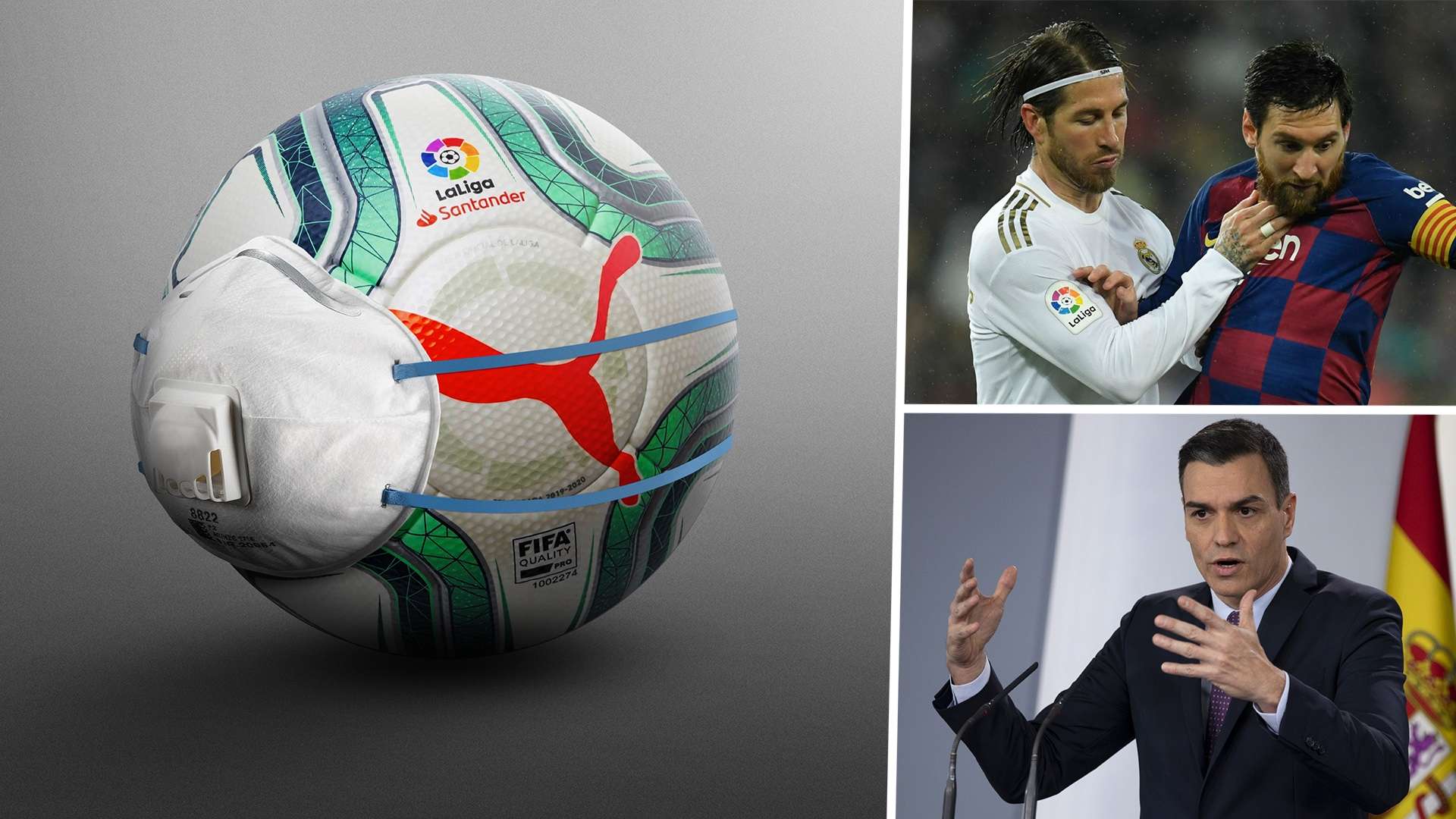President of Spain Pedro Sanchez has lent his support to the return of football as the nation's Health Ministry approved the use of testing when clubs and players continue training.
La Liga and the rest of Spain's football pyramid have been halted since mid-March due to the pandemic, which has caused almost 25,000 deaths nationwide.
Infection rates have slowed in recent weeks, however, leading to a gradual relaxation of quarantine measures.
From Saturday residents will be permitted to carry out individual exercise regimes outdoors, with families of young children already allowed to move around while respecting social distancing norms.
And similar measures will be taken in order to begin professional training from May 4 onwards, with players initially restricted to solo exercises before moving on to team drills with an eye to competitive matches returning at the start of June.
Sanchez warned that any such progress would depend on a continued reduction of Covid-19 infections, but expressed his hope that La Liga would soon be back in action.
"We hope that football will soon be back, La Liga and the [Royal Spanish Football] Federation will decide that, but they already have our permission to begin individual training in team sports," he explained in Saturday's press conference.
"Of course, we will be watching it on television before we go back to the stadiums.
"We will move back a step if we see that we have gone too fast. Revising any of the phases would not constitute failure here."
Spain's efforts to resume professional sporting activity have been boosted by the green light from the Health Ministry over the supply of coronavirus tests, a measure announced on Thursday.
The High Sports Council (CSD) confirmed that the government agency approved testing on players from May 4 onwards, in order to rapidly discover infections and prevent spreading throughout teams once group training returns.
On Saturday the CSD presented its own protocol under which sporting activity may be carried out, with the goal a "safe, gradual and balanced return to sporting competition and training, offering the highest levels of supervision and without leaving any sportsman behind," per the body's statement.
"It is a proposal focused on the safety of sportsmen and with the legitimate expectation of a return to normality for the entire sporting sector, key from a social and economic point of view for the gradual entry of our country into a new normal which will emerge from this severe health crisis."
The organisation added that the good practices put into place over the course of May would help clubs "become better prepared for future health crises." It warned, however, that "zero risk does not exist", and that successful implementation of the protocol would also depend on the behaviour and commitment of each individual.
